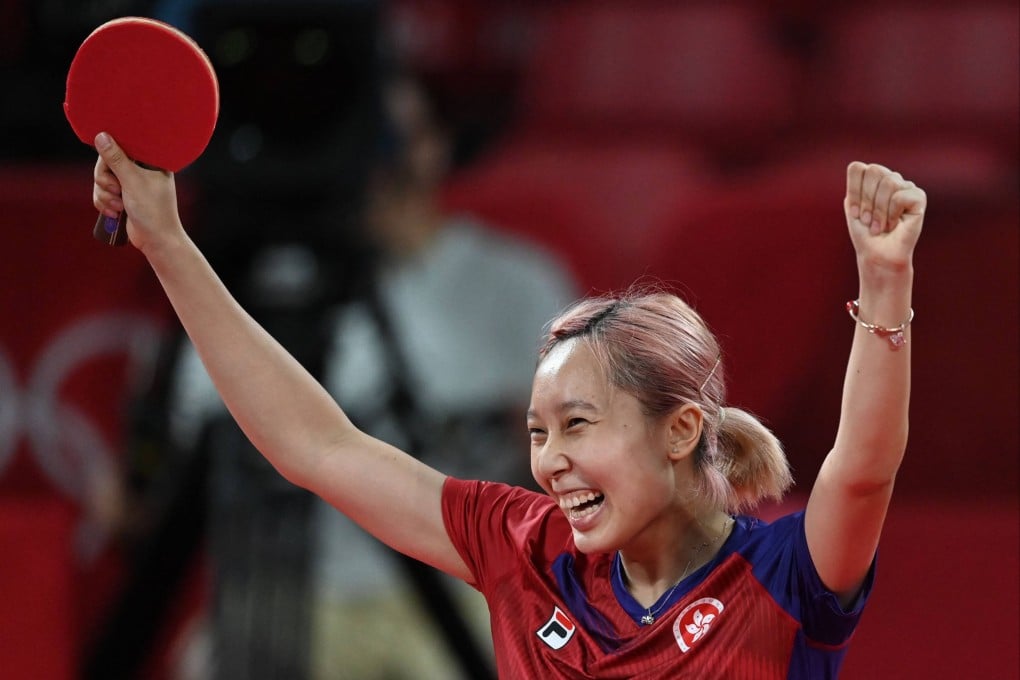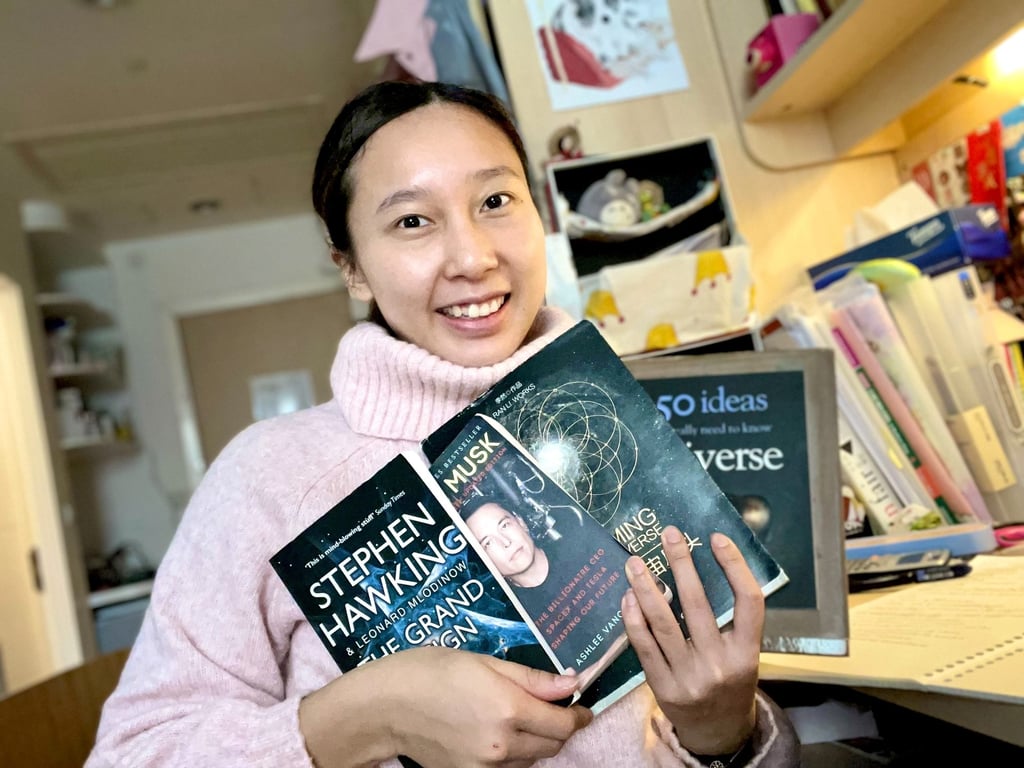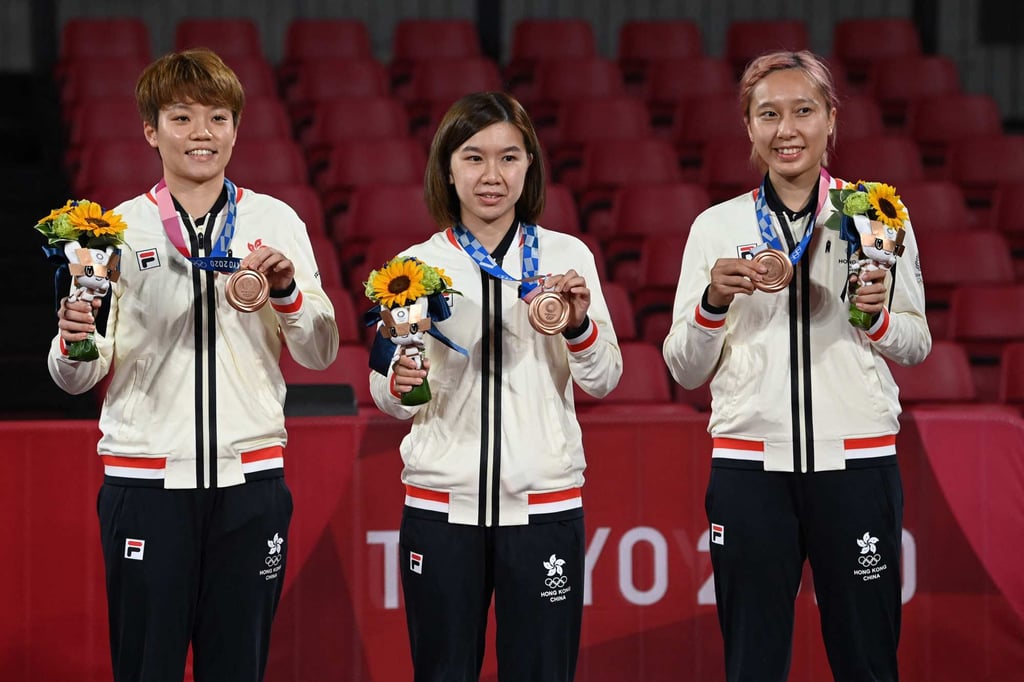Hong Kong Olympic hero Minnie Soo swaps table tennis for university, arm injury means she can no longer ‘enjoy’ sport
- Soo can no longer fully train or even ‘enjoy’ the sport and will pursue second childhood dream by studying physics
- ‘It’s been a wonderful and rewarding journey, and now I’ll dedicate this passion to the second chapter of my life,’ she says

Olympic bronze medallist Minnie Soo Wai-yam’s long-term future in table tennis is up in the air, after she revealed she is going back to school in September because of an injury.
Soo has been admitted to the School of Science at the Hong Kong University of Science and Technology (HKUST), where she will major in physics for the 2022-23 academic year, under a new admission scheme for elite athletes set up by the University Grants Committee (UGC).

“A nerve problem in my right arm triggered me to make this decision,” Soo said at a virtual press conference on Zoom on Thursday.
Soo thrilled Hong Kong fans when she won both of her matches to steer the women’s team past Germany 3-1 in their bronze medal match at the Games, but said that her physical condition has been declining over the past year.
“I couldn’t train too much,” Soo said. “I felt like I was wasting my time, so I decided to go back to school at this age.
“I’ve had a nerve problem in my right arm for more than one year. They call it ‘yips’ – it’s like a type of focal dystonia that causes my muscles to contract and stiffen when I play, which is extremely disturbing to my training because I can’t repeat a movement continuously.”
